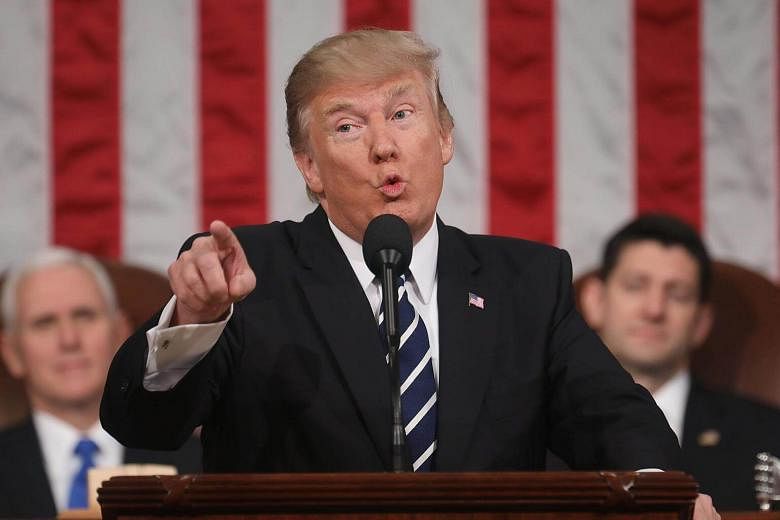After all the applause from his address to the joint session of Congress dies down, US President Donald Trump faces a list of challenges to implement his agenda, analysts say.
His ringing call for unity and bipartisanship is unlikely to heal a deeply polarised nation and, while the influence of moderates in the Cabinet may stabilise foreign policy, domestic politics will remain ideologically charged.
Mr Trump also faces intense battles in Congress over hot-button issues like healthcare, immigration, education-sector reform and infrastructure and defence spending.
Some measures, such as the repeal and replacement of the Affordable Care Act, commonly known as Obamacare, will be opposed not just by Democrats, but by some Republicans facing elections in 2018 and queasy about dealing with irate voters in their home constituencies if a new plan hits their insurance policies. Mr Trump has promised affordable and easily accessible healthcare, but has given no specifics thus far.
Several Republicans have already faced anxious constituents at town hall meetings. On Monday, speaking to state governors from across the United States, Mr Trump conceded a well-known fact, saying: "I have to tell you, it's an unbelievably complex subject. Nobody knew that healthcare could be so complicated."
The President has also announced a "historic" US$54 billion (S$76 billion) hike in military spending.
"There is widespread agreement in Washington that we do need to spend more on defence," Mr Blaise Misztal, director for national security at the Bipartisan Policy Centre in Washington, told The Straits Times.
"Budget cuts... amounting to something like US$50 billion a year each year for the past five years, have reduced the level of the military quite a bit. Defence spending as a percentage of GDP is at the lowest in 70 years."
However, he said the US$54 billion figure was misleading. In reality, the increase would be around US$20 billion over a figure already proposed by former president Barack Obama.
Mr Trump will also have to cut money from other areas to meet that expenditure to balance his budget. That will draw stiff opposition if it comes at the expense of social services. He also wants to slash the State Department's budget and cut foreign aid, which could deepen opposition from the bureaucracy itself.
Democratic leaders Chuck Schumer and Nancy Pelosi on Monday slammed the idea of reducing social-sector spending.
Republican Senator Lindsey Graham's immediate reaction - before Mr Trump's speech to Congress - was that a budget like that would be "dead on arrival" in the House.
Mr Graham, a frequent Trump critic, said cuts to the State Department budget would put Americans serving the country overseas at risk.
NBC news quoted him as saying: "It's not going to happen. It would be a disaster."
In his speech, Mr Trump also asked Congress for support in passing a US$1 trillion bill for infrastructure .
"Crumbling infrastructure will be replaced with new roads, bridges, tunnels, airports and railways gleaming across our beautiful land," he told Congress. "The time has come for a new programme of national rebuilding."
But while the plan has drawn bipartisan support, the devil is in the details, analysts say, and many, including Republicans, will baulk at increasing the budget deficit.
"The challenge is still to translate many of these aspirational goals into policy and that is daunting," Cornell University professor Glenn Altschuler told The Straits Times. "This is a president who decried enormous deficits but whose proposals taken in total will generate even greater deficit."


